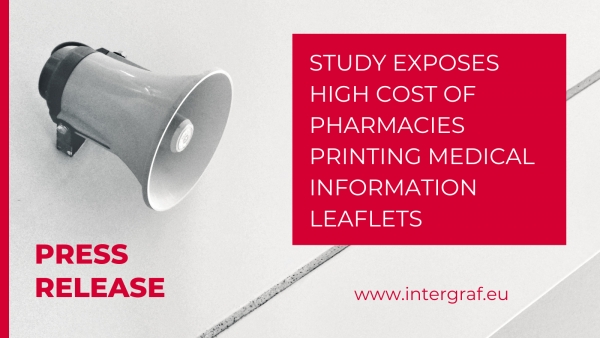9 July 2015

Charles Jarrold, BPIF CEO, comments on Conservative's summer budget
The first budget under a pure Conservative Government for nearly 20 years promised to put Britain firmly on the path from a high tax, high welfare society to a lower tax, lower welfare society. For businesses the budget offered reduced corporation tax, permenant investment allowances and plans to cut National Insurance contributions. Delivery of quality apprenticeships is an issue that is of real relevance and concern to our members - we’re therefore particularly pleased to see the manifesto commitment to 3 million apprenticeships reiterated - more below.
The Chancellor announced a new national living wage, introduced from next year at £7.20 an hour and reaching £9 an hour by 2020. He defended this decision to business owners, referring to the OBR’s assessment that this will have only a “fractional” effect on jobs and affect just 1% of corporate profits. The impact on our sector may not be particularly significant, however we are generally wary of legislative increases in this area, as the impact can be to reduce hiring.
In what appears to be a concession to businesses, corporation tax will be cut to 19% in 2017 followed by cuts to 18% 2020 – this is welcome, and should help raise the confidence of business owners to support their businesses through investment to improve performance. Similarly, we are pleased to see that annual investment allowance will be made permenant at £200,000, this stood at £500,000 for the current year, and was due to fall to £25,000 at the end of 2015. He also announced £3,000 off national insurance contributions for employers, which will also benefit SME’s. Improving productivity has been a theme in discussions leading up to the budget, and is an issue that our members are sensitive to. Measures to support investment in equipment and people are key, so these are welcome steps.
Insurance Premium Tax will be increased from 6% to 9.5% impacting on every company’s insurance costs. The Climate Change Levy Exemption on renewables will also be removed, reducing the incentive for companies to buy renewable energy. We expect climate change to again become more prominent, so we expect this change will be part of a broader review of the government’s approach.
The manifesto commitment to provide 3 million apprenticeships was reiterated and an apprenticeship levy on all big firms, to fund more in work training of young people, was announced. The Chancellor claims those firms that offer apprenticeships will get more out of this, in terms of funding for apprenticeships, than they put in, however large firms will be wary of the skills bureaucracy of the past. As a leading provider of high quality apprenticeship training, we consider that it’s critical that quality is not sacrificed for quantity, and that the process remains employer led. We are also concerned about how the levy will be implemented in practice to ensure a net benefit to those providing apprenticeships, and are concerned about the risk of increased bureaucracy making it more difficult for employers to access funding to support their initiatives.
For employees, the tax free personal allowance will be raised to £11,000 next year, and in future years will always rise in line with inflation. The higher rate threshold to rise to £43,000 next year.
Powers will be devolved to Greater Manchester, and Mr Osborne said he was working towards deals with other northern cities including Sheffield to devolve powers in return for a directly elected mayor.
Overall, our view is that the budget reflects a pragmatic approach by the Chancellor. Government spending has not been cut quite as deeply as initially expected, and this should help avoid damaging a still fragile economic recovery. Modest inducements for business have been matched with some headline grabbing changes, notably to legislate a living wage well above the current minimum wage. We welcome ongoing support for apprenticeship delivery, but await details on the training levy – a potential concern. We are also pleased to see continued support for investment even if it is just a modest step in addressing wider concerns around UK productivity.
 Intergraf Economic News (Paper Prices) - March 2024
Intergraf Economic News (Paper Prices) - March 2024
18 March 2024
Access the latest edition of the Economic Newsletter for the European Printing Industry for data on paper consumption, and pricing data for pulp, paper and recovered paper. Data for packaging papers and board is also available with this edition.
 STUDY EXPOSES HIGH COST OF PHARMACIES PRINTING MEDICAL INFORMATION LEAFLETS
STUDY EXPOSES HIGH COST OF PHARMACIES PRINTING MEDICAL INFORMATION LEAFLETS
7 March 2024
Intergraf welcomes the release of a study by our partner MLPS (Medical Leaflet = Patient Safety), a subgroup of the European Carton Manufacturers Association (ECMA) shedding light on the potential economic costs associated with the proposed use of Print on Demand (PoD) leaflets in the pharmaceutical legislation revision.
The BPIF is the printing industries champion. By becoming a member you join a diverse and influential community. We help you solve business problems, connect you to new customers and suppliers and make your voice heard in government.
Call 01676 526030









